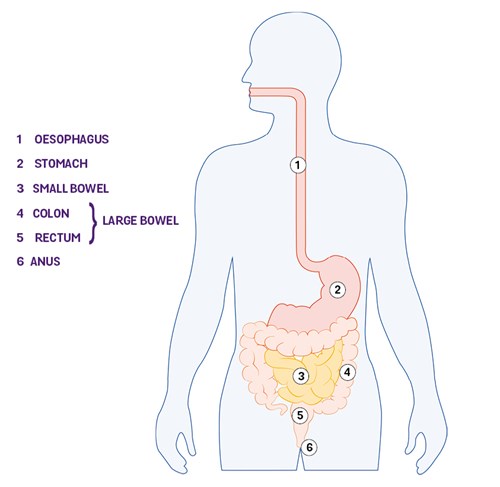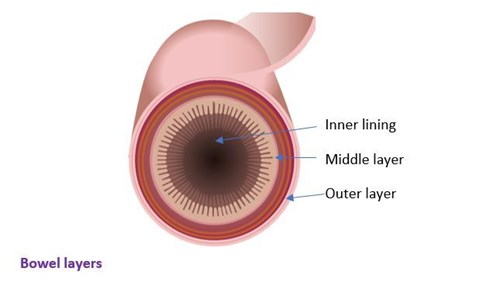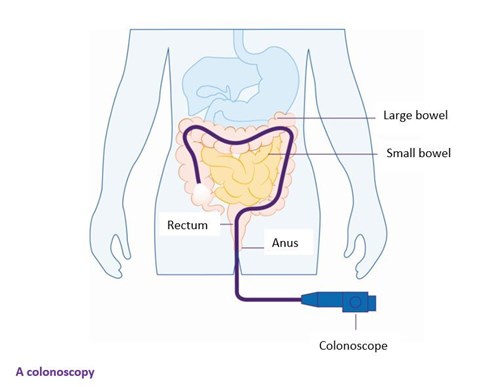Autoimmune conditions
Microscopic Colitis has been linked to some other autoimmune conditions. An autoimmune condition is caused by the immune system attacking other parts of the body.
Around 4 in 10 people with Microscopic Colitis also have an autoimmune condition.
These may include:
- Type 1 diabetes
- Thyroid disease
- Rheumatoid arthritis.
Having these conditions makes it more likely that you will have Microscopic Colitis as well.
Coeliac disease
Another autoimmune condition closely associated with Microscopic Colitis is coeliac disease. This is a condition that causes your immune system to attack your gut when you eat gluten. Gluten is a type of protein found in wheat, barley and rye.
Both conditions affect the production of white blood cells and have similar symptoms. These can include diarrhoea, bloating and tummy pain. This means Microscopic Colitis can sometimes be misdiagnosed as coeliac disease.
You can have both conditions together. You are more likely to have Microscopic Colitis if you already have coeliac disease. If you do have both, you may still have diarrhoea on a gluten-free diet if your Microscopic Colitis is not treated.
Irritable bowel syndrome (IBS)
IBS is a common, lifelong condition affecting the digestive system. Many of its symptoms are very similar to the symptoms of Microscopic Colitis. These include diarrhoea, tummy pain and bloating. The exact cause of IBS is not known, and there is no cure. But medicines and careful changes to diet can usually help keep the symptoms under control.
Microscopic Colitis is sometimes misdiagnosed as IBS. This is because their symptoms are so similar, and IBS is more well known in comparison. Some people may have both conditions at the same time. Around 1 in 10 people with IBS involving diarrhoea may also have Microscopic Colitis. This can make diagnosis difficult. This means that sometimes people do not receive the correct diagnosis and treatment as quickly as they should.
Crohn’s and Ulcerative Colitis
Some evidence suggests that Microscopic Colitis may sometimes develop into Crohn’s or Ulcerative Colitis. At the moment, we do not understand how this happens, but the risk of this happening is small.
Bile acid malabsorption (BAM)
Around 4 out of 10 people with Microscopic Colitis also have BAM. This is when bile acids used in digestion cannot be reabsorbed as usual and cause bile acid diarrhoea (BAD).
BAM is treated with bile acid binders. These medicines work by binding to the bile acids in your gut. This stops them from reaching the colon so that they cannot cause diarrhoea. You may be offered bile acid binders if your Microscopic Colitis is related to BAM. You may also be offered bile acid binders if other treatments do not stop your diarrhoea.
If your healthcare professional thinks your Microscopic Colitis is related to BAM, you may be sent for a special test called a SeHCAT scan.
There is more on SeHCAT scans in the section how is it diagnosed? Find out more about BAM in other treatments. Find out more about diarrhoea, including how to manage it, in our information on diarrhoea.
Microscopic Colitis and risk of colon cancer
Microscopic Colitis does not make you any more likely to get colon cancer than the general population.







 Become a member: Find out about the benefits of joining our amazing community
Become a member: Find out about the benefits of joining our amazing community